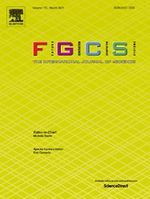Neural Machine Translating from Natural Language to SPARQL
Aus International Center for Computational Logic
Neural Machine Translating from Natural Language to SPARQL
Xiaoyu YinXiaoyu Yin, Dagmar GromannDagmar Gromann, Sebastian RudolphSebastian Rudolph
Xiaoyu Yin, Dagmar Gromann, Sebastian Rudolph
Neural Machine Translating from Natural Language to SPARQL
Future Generation Computer Systems, 117:510-519, 2021
Neural Machine Translating from Natural Language to SPARQL
Future Generation Computer Systems, 117:510-519, 2021
- KurzfassungAbstract
SPARQL is a highly powerful query language for an ever-growing number of resources and knowledge graphs represented in the Resource Description Framework (RDF) data format. Using it requires a certain familiarity with the entities in the domain to be queried as well as expertise in the language’s syntax and semantics, none of which average human web users can be assumed to possess. To overcome this limitation, automatically translating natural language questions to SPARQL queries has been a vibrant field of research. However, to this date, the vast success of deep learning methods has not yet been fully propagated to this research problem. This paper contributes to filling this gap by evaluating the utilization of eight different Neural Machine Translation (NMT) models for the task of translating from natural language to the structured query language SPARQL. While highlighting the importance of high-quantity and high-quality datasets, the results show a dominance of a Convolutional Neural Network (CNN)-based architecture with a Bilingual Evaluation Understudy (BLEU) score of up to 98 and accuracy of up to 94%. - Weitere Informationen unter:Further Information: Link
- Forschungsgruppe:Research Group: Computational LogicComputational Logic
@article{YGR2021,
author = {Xiaoyu Yin and Dagmar Gromann and Sebastian Rudolph},
title = {Neural Machine Translating from Natural Language to {SPARQL}},
journal = {Future Generation Computer Systems},
volume = {117},
year = {2021},
pages = {510-519},
doi = {10.1016/j.future.2020.12.013}
}
